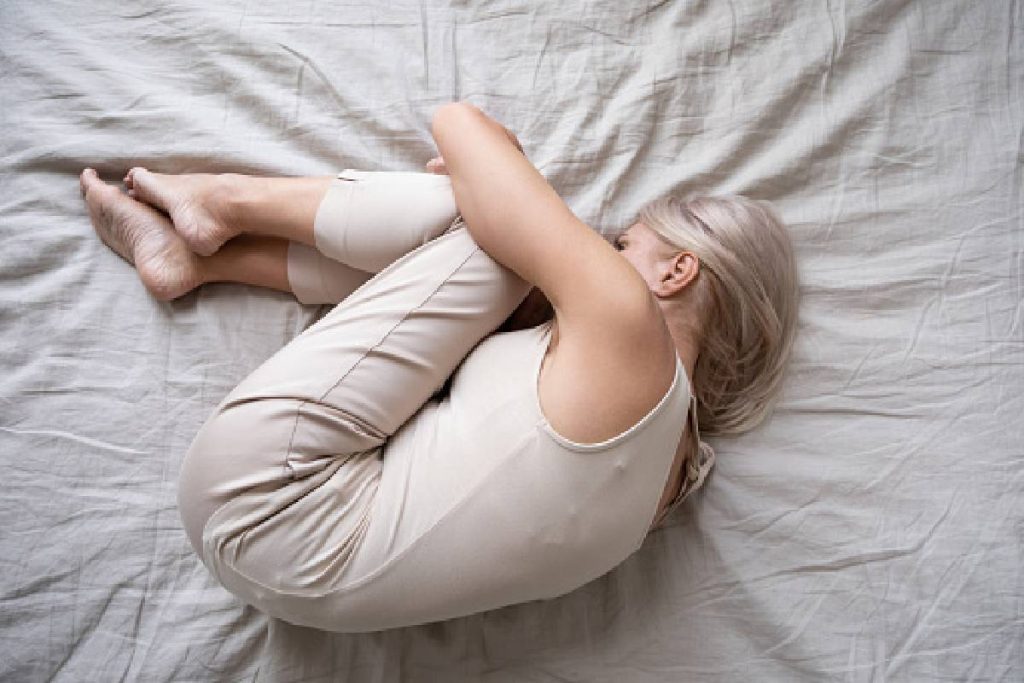Table of Contents
What is Menopause in Women?
Menopause is when a woman stops having her period and can no longer get pregnant naturally. Periods generally start to become less frequent within a few months or years before they stop altogether. Sometimes they can stop suddenly. It is the natural decline in reproductive hormones when a woman reaches her forties or fifties.
The combination of these symptoms can lead to anxiety or depression. Menopause is a natural process with treatments that focus on relieving symptoms—vaginal dryness with topical lubricants or estrogens. Medicines can reduce the severity and frequency of hot flashes. In exceptional circumstances, oral hormone therapy is helpful.
Symptoms of Menopause
- Irregular periods
- Vaginal dryness
- Hot flushes
- Shaking chills
- Night sweats
- Trouble sleeping
- Humor changes
- Weight gain and slowing down of metabolism
- Weakened hair and dry skin
- Loss of breast fullness
Causes of Menopause
Menopause can result from:
The natural decrease in reproductive hormones – As she ages 30, her ovaries will begin to produce less estrogen and progesterone, the hormones regulating her period, and her fertility will decrease.
At 40, your periods may be longer or shorter, heavier or lighter, and more or less frequent, until finally, on average, at the age of 51, your ovaries stop releasing eggs, and you no longer have more rules.
Surgery that removes the ovaries (oophorectomy) – Ovaries produce hormones, including estrogen and progesterone, that regulate the menstrual cycle. It causes immediate menopause.
Surgery that removes the uterus but not the ovaries (hysterectomy) usually does not cause immediate menopause. Even though you are off your period, your ovaries still release eggs and produce estrogen and progesterone.
Chemotherapy and radiotherapy – These cancer therapies can induce menopause, causing symptoms such as hot flashes during or shortly after treatment. Stopping menstruation (and fertility) is not always permanent after chemotherapy. Radiation therapy applied to other body parts, such as the breast tissue or the head and neck, will not affect menopause.
Primary ovarian failure – About 1% of women experience menopause before age 40 (premature menopause). Early menopause can be due to the inability of the ovaries to produce normal levels of reproductive hormones (primary ovarian failure), which genetic factors or an autoimmune disease can cause. For these women, hormone therapy is generally recommended at least until the natural age of menopause to protect the brain, heart, and bones.
Complications of Menopause
After menopause, your risk for specific medical conditions increases. Examples include:
Heart and blood vessel (cardiovascular) disease – When your estrogen levels drop, your risk for cardiovascular disease increases. Therefore, it is essential to exercise regularly, eat healthily and maintain an average weight. Ask your doctor for advice on protecting your heart, such as lowering your cholesterol or your blood pressure if it is too high.
Osteoporosis – This condition causes bones to become brittle and brittle, which increases the risk of fractures. In the initial stages after menopause, you can rapidly lose bone density, increasing your osteoporosis risk. Postmenopausal women with osteoporosis are particularly susceptible to spinal, hip, and wrist fractures.
Urinary incontinence – As the tissues of the vagina and urethra lose elasticity, you may experience frequent, sudden, strong urges to urinate, followed by involuntary leakage of urine (urge incontinence) or when coughing, laughing, or lifting objects.
Strengthening the muscles with Kegel exercises and topical vaginal estrogen can help relieve symptoms of incontinence. Hormone therapy can also be an effective treatment option for vaginal and urinary changes in menopause that can lead to urinary incontinence.
Sexual Function Vaginal dryness due to decreased moisture production and loss of elasticity can cause discomfort and light bleeding during intercourse. Also, reduced sensitivity may reduce your desire for sexual activity.
Water-based vaginal moisturizers and lubricants can help. If a vaginal lubricant is not enough, many women benefit from local vaginal estrogen therapy, available as a cream, tablet, or vaginal ring.
Weight gain – Many women gain weight during the transition and after because their metabolism slows down. Eat less and exercise more to maintain your current weight.
Treatment of Menopause
- You may need treatment if your symptoms are severe or affect your quality of life. Hormone therapy can be an effective treatment in women younger than 60 years, or within ten years after the onset of menopause, for the reduction or treatment of:
- Hot flushes
- night sweats
- rinse
- vaginal atrophy
- osteoporosis
